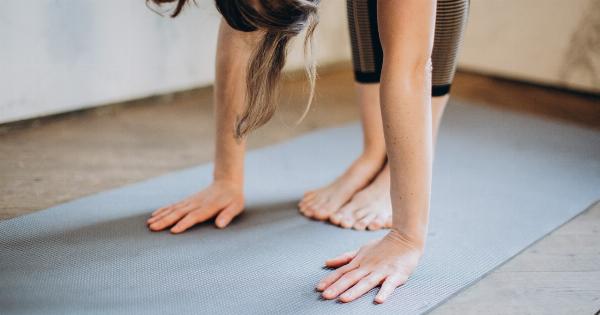One of the most common physical ailments that can affect hair health is stress. High levels of stress can disrupt the natural hair growth cycle, leading to excessive hair shedding or even hair loss.
This condition is known as telogen effluvium, and it occurs when the body’s stress response causes the hair follicles to enter a resting phase prematurely.
2. Nutritional Deficiencies and Hair Problems
Another physical ailment that can impact hair health is nutritional deficiencies. Lacking essential nutrients like vitamins, minerals, and proteins can weaken the hair strands, making them more prone to breakage and damage.
Some nutrients that play a vital role in hair health include biotin, iron, zinc, and vitamin D. Insufficient intake of these nutrients can lead to hair thinning and slow hair growth.
3. Hormonal Imbalances and Hair Issues
Hormonal imbalances can also have a significant impact on hair health.
Conditions like polycystic ovary syndrome (PCOS), thyroid disorders, and hormonal fluctuations during pregnancy and menopause can cause hair thinning, hair loss, and changes in hair texture. Hormonal imbalances can disrupt the normal hair growth cycle, leading to excessive shedding and difficulty in regrowth.
4. Scalp Conditions and Hair Loss
The health of the scalp plays a crucial role in hair health as well. Various scalp conditions like dandruff, scalp psoriasis, and seborrheic dermatitis can cause inflammation, itching, and flaking.
These conditions can disrupt the hair growth cycle and weaken the hair follicles, leading to hair loss and thinning.
5. Autoimmune Diseases and Hair Thinning
Autoimmune diseases, such as alopecia areata and lupus, can have a detrimental effect on hair health. In these conditions, the immune system mistakenly attacks the hair follicles, causing hair loss in patches or widespread thinning.
Autoimmune diseases can also lead to scalp inflammation, itching, and scarring that further impair hair growth.
6. Medications and Hair Problems
Several medications can have side effects that affect hair health. For example, certain medications used for cancer treatment, high blood pressure, depression, and hormonal disorders can cause hair loss or thinning as a side effect.
Chemotherapy drugs are well-known for causing temporary hair loss, which usually regrows after the treatment is complete.
7. Hair Styling Practices and Damage
Excessive use of heat styling tools like flat irons, curling irons, and hair dryers can damage the hair shafts, leading to weak and brittle hair.
Tight hairstyles such as ponytails, braids, and buns can also cause hair breakage and traction alopecia, which is hair loss due to constant tension on the hair strands. Chemical treatments like perming, relaxing, and coloring can also damage the hair and make it prone to breakage.
8. Chronic Illnesses and Hair Loss
Chronic illnesses or prolonged periods of illness can have a significant impact on hair health.
When the body is dealing with a severe illness or chronic condition, it may divert its resources away from the hair follicles, leading to hair thinning and shedding. Conditions like diabetes, kidney disease, and autoimmune disorders can contribute to hair problems in this way.
9. Environmental Factors and Hair Damage
Environmental factors such as exposure to UV radiation, pollution, and harsh weather conditions can damage the hair and affect its overall health. UV rays can weaken the hair strands, making them prone to breakage and dryness.
Pollution and environmental toxins can also build up on the scalp and hair, leading to scalp irritation, hair damage, and hair loss.
10. Ageing and Hair Thinning
As we age, our hair naturally goes through changes. With age, the rate of hair growth slows down, and the hair strands may become thinner and more delicate. Hormonal changes during menopause can also contribute to hair loss and thinning.
Proper hair care and a healthy lifestyle can help minimize the impact of ageing on hair health.






























